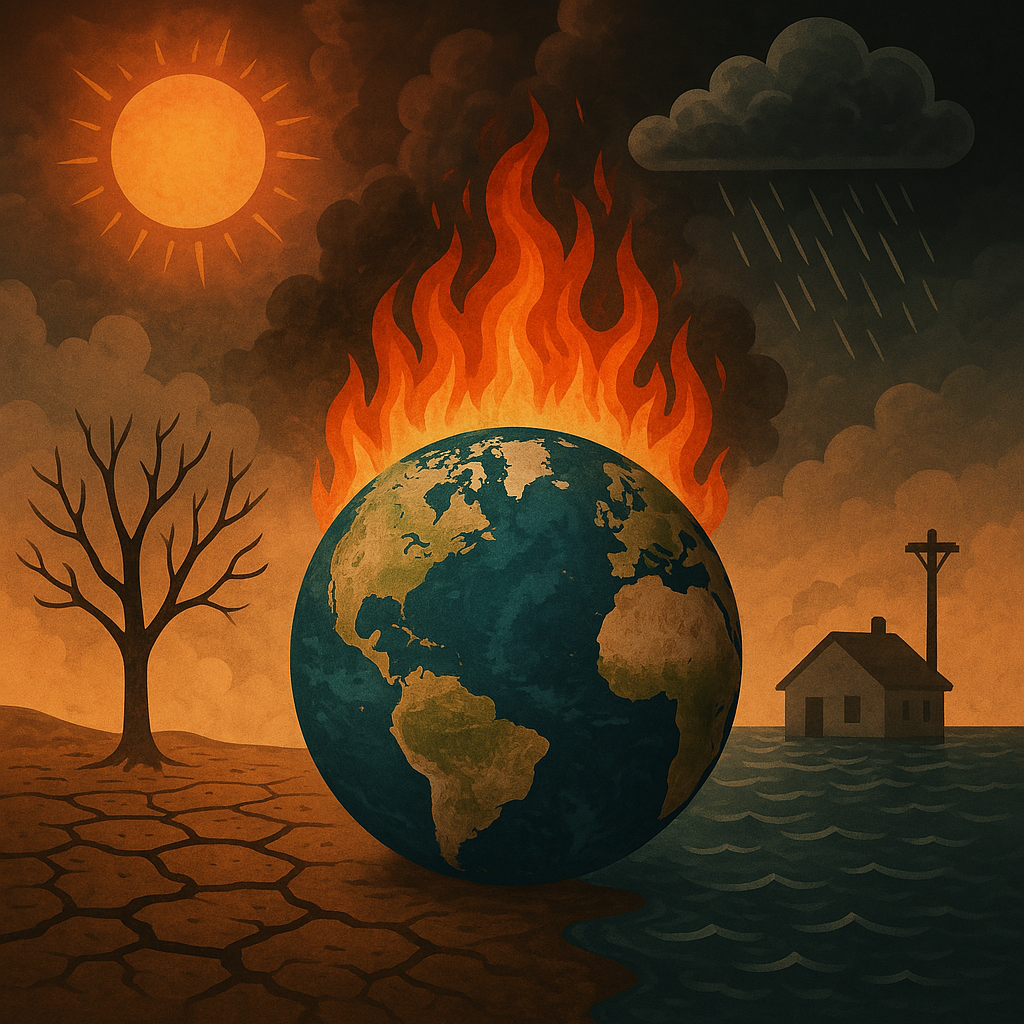Causes of Global Warming
-
Burning Fossil Fuels: For electricity, heating, transportation.
-
Deforestation: Reduces the planet’s ability to absorb CO₂.
-
Agriculture: Methane from livestock, nitrous oxide from fertilizers.
-
Industrial Activities: Emission of greenhouse gases from factories.
Effects of Global Warming on Our Planet
1. Climate Changes
-
More extreme weather: Heatwaves, hurricanes, droughts, and floods are becoming more intense and frequent.
-
Changing rainfall patterns: Some areas are becoming wetter, others drier.
2. Melting Ice and Rising Sea Levels
-
Polar ice caps and glaciers are melting.
-
Sea levels are rising, threatening coastal communities with flooding and erosion.
3. Ocean Impacts
-
Warmer oceans: Affect marine life and weather patterns.
-
Ocean acidification: Harms coral reefs and shellfish due to more CO₂ dissolving in water.
4. Biodiversity Loss
-
Many species are struggling to adapt to rapid climate changes.
-
Habitats like coral reefs, Arctic tundra, and rainforests are under severe threat.
5. Impact on Human Health
-
Spread of diseases like malaria and dengue as warmer climates expand mosquito ranges.
-
Increased heat-related illnesses and food/water insecurity.
6. Economic Consequences
-
Damage to infrastructure from storms and floods.
-
Disruption of agriculture leading to food shortages and higher prices.
-
Costs of disaster relief and adaptation measures.
What Can Be Done?
-
Switch to renewable energy (solar, wind, hydro).
-
Improve energy efficiency in buildings and transport.
-
Reforestation and conservation efforts.
-
Support sustainable agriculture.
-
International cooperation (e.g., Paris Agreement).
-
Individual actions: Reduce, reuse, recycle, and eat less meat.

 SkillClick
SkillClick
